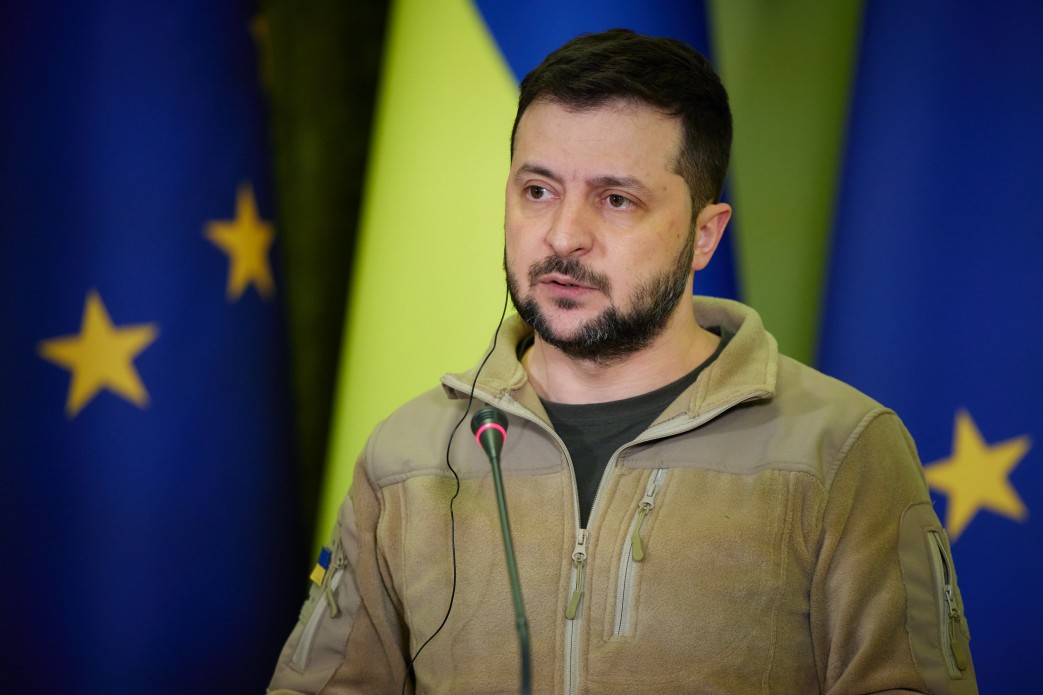President Volodymyr Zelenskyy’s recent criticism of a draft text that fails to provide a clear timeline for Ukraine’s NATO membership has attracted significant attention and sparked discussions at the NATO summit. Zelenskyy’s reaction comes amidst ongoing tensions between Ukraine and Russia, underscoring the importance of NATO’s support in bolstering Ukraine’s security and stability. This article analyzes the details surrounding Zelenskyy’s condemnation and highlights the implications it carries for Ukraine’s aspirations of joining the Western military alliance.
Unveiling Ukraine’s NATO Ambitions:
Ukraine has long expressed its desire to join NATO, viewing membership as crucial for its defense against Russian aggression. President Zelenskyy, like his predecessors, has been a vocal advocate of closer ties with the Western military alliance. However, NATO’s response to Ukraine’s aspirations has been a subject of debate and varying opinions within the alliance.
Zelenskyy’s Outrage:
At the NATO summit, President Zelenskyy expressed his strong disapproval of a draft text that presented an ambiguous stance on Ukraine’s NATO membership timeline. Zelenskyy described the draft as “absurd” and emphasized the need for a clear commitment to Ukraine’s accession process. His remarks raised eyebrows among NATO member states, highlighting the importance of addressing Ukraine’s security concerns promptly.
Implications for Ukraine’s Security:
Zelenskyy’s criticism reflects the growing frustration in Ukraine over the lack of clarity regarding its NATO membership prospects. Ukraine’s ongoing conflict with Russia, particularly the annexation of Crimea and the war in eastern Ukraine, has heightened the urgency for NATO’s support. By securing a clear timeline for membership, Ukraine hopes to deter further Russian aggression and strengthen its defense capabilities.
NATO’s Response:
NATO leaders, including Secretary General Jens Stoltenberg, have acknowledged Zelenskyy’s concerns and expressed solidarity with Ukraine. Stoltenberg reaffirmed NATO’s commitment to Ukraine’s territorial integrity and sovereignty, acknowledging the progress made in NATO-Ukraine cooperation. However, the alliance remains divided on providing a definitive timeline for Ukraine’s membership, with some members expressing reservations over potential implications for NATO-Russia relations.
Geopolitical Considerations:
The ongoing geopolitical dynamics in Eastern Europe play a significant role in shaping NATO’s approach towards Ukraine. Balancing the concerns of NATO member states and the need to maintain stability in the region creates a delicate situation. While many NATO nations advocate for a stronger partnership with Ukraine, others exercise caution, fearing that provoking Russia could escalate tensions and jeopardize overall security.
Ukraine’s Strategic Importance:
Ukraine’s strategic location as a bridge between Russia and Europe further underscores its significance for NATO. By embracing Ukraine as a member, NATO would enhance its presence in Eastern Europe, serving as a deterrent to Russian aggression. Moreover, Ukraine’s democratic aspirations align with NATO’s core values, making it an attractive candidate for membership.
The Road Ahead:
As discussions continue at the NATO summit, finding a consensus on Ukraine’s membership timeline remains a challenge. Balancing the concerns of NATO member states and addressing Ukraine’s security needs will require careful diplomacy and consideration. The resolution of the ongoing conflict in eastern Ukraine and progress on key reforms within Ukraine itself will likely play a crucial role in shaping NATO’s future approach towards Ukraine.
Conclusion:
President Zelenskyy’s criticism of the ambiguous draft text regarding Ukraine’s NATO membership timeline has drawn attention at the NATO summit. Ukraine’s aspirations to join the alliance have gained prominence in light of the ongoing conflict with Russia. While NATO acknowledges Ukraine’s security concerns, reaching a consensus on the membership timeline presents a complex challenge. As geopolitical dynamics evolve in Eastern Europe, the decisions made regarding Ukraine’s NATO membership will have far-reaching implications for the region’s stability and security.



